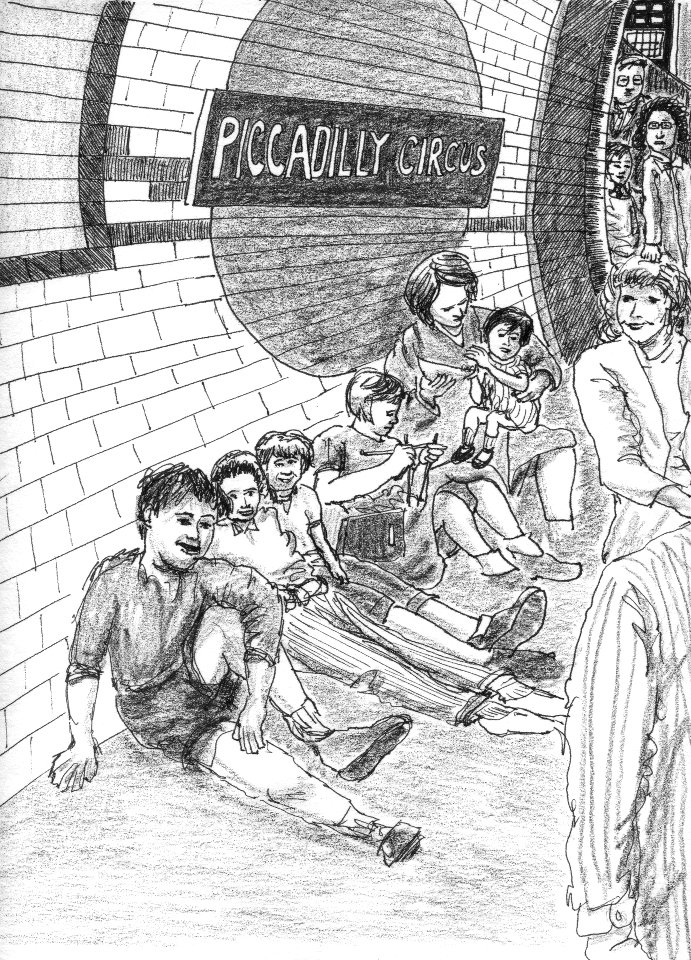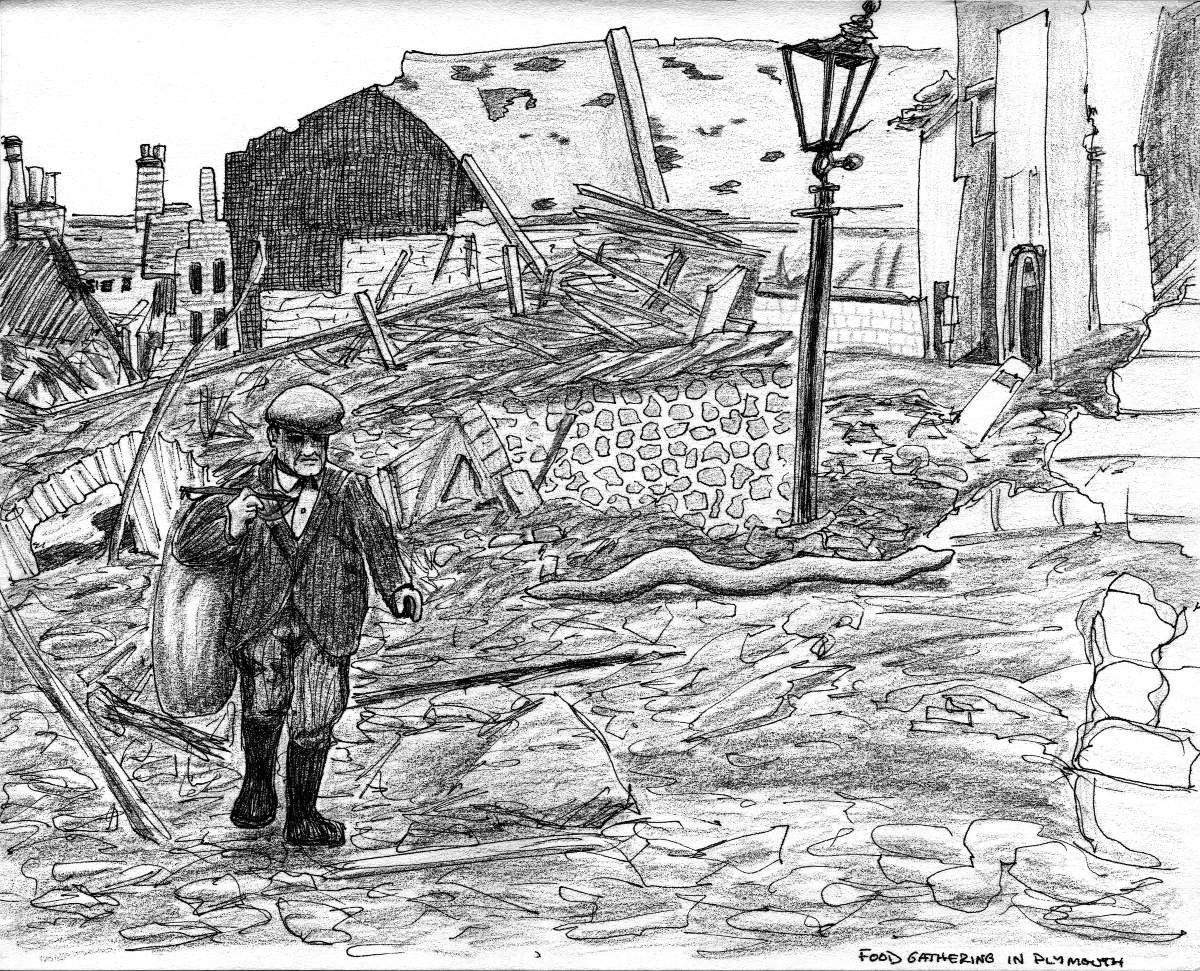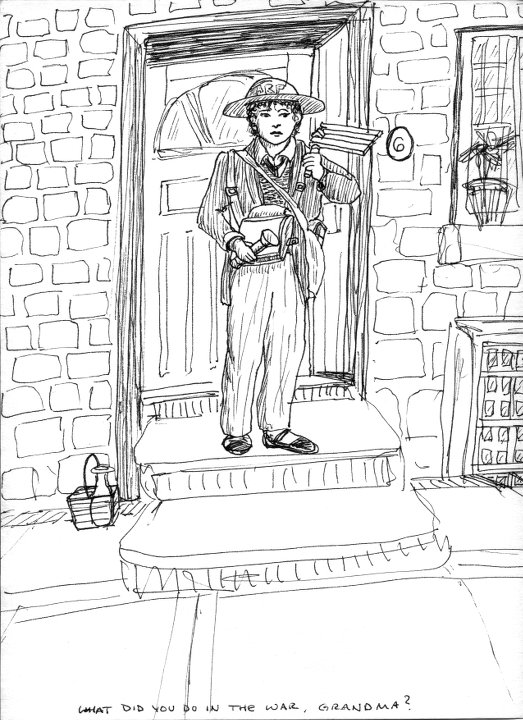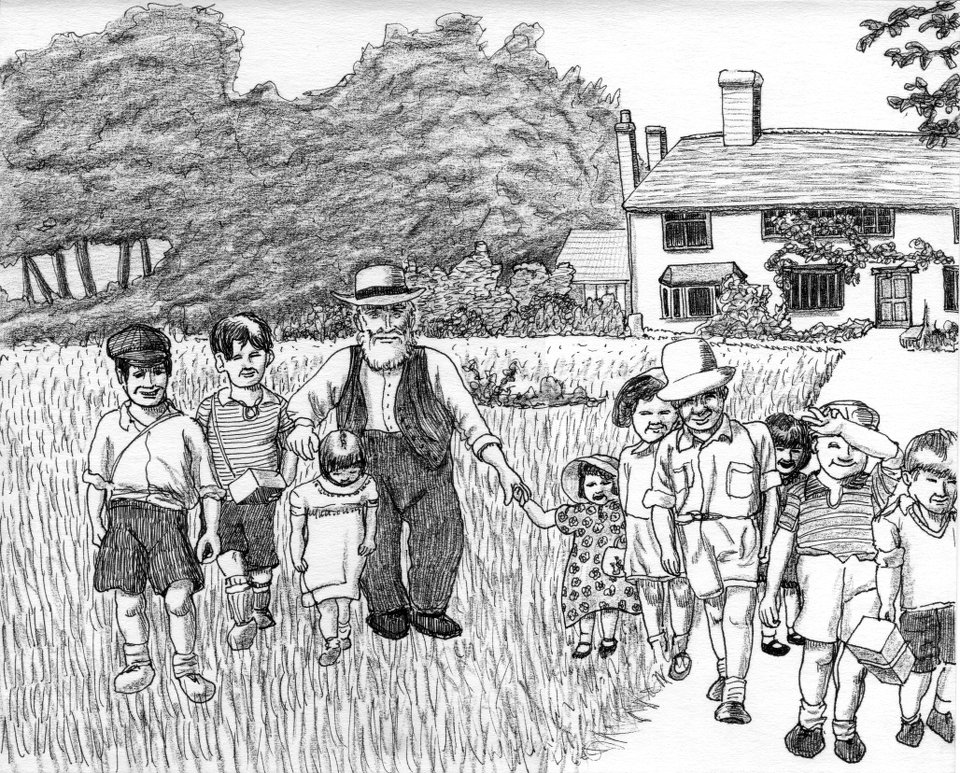Last time, I posted about trying to understand more about my grandmother, the second war, and drawing. Here’s some more about all of that – and a bit of meta-thinking about life itself, while I’m at it.
I had an odd upbringing – studied education, even while being only indirectly educated – and studied psychology, even while being traumatized. So when I first encountered Timothy Leary’s idea of “Intelligence Squared” – that is, intelligence thinking about how it works, so as to (hopefully) learn to function more intelligently over time, I was nothing short of delighted – made PERFECT sense.
Awareness isn’t that useful, until you’ve worked out where to connect the feedback, to correct the system!
This idea also reinforced my pre-existing tendency to consider myself both the researcher and lab-sample (as Buckminster Fuller did) – all of which is simply meant to say I’ve been looking for meta-clues for awhile, and long ago decided that self-deception is an error condition in these studies, that doesn’t justify it’s (rather tenuous anyhow) ego benefit. (If you distort the value of your base-unit, you really get into trouble when you start multiplying and extrapolating).
Not claiming I don’t still fool myself – but I do try to be most exacting with my mirror observations, and bring ever more compassion to bear, as the distance from me (and thus, my indisputable ignorance) increases.
Strange Holiday (Top Photo)
This was an especially odd discovery for me – the programs to send kids out of the cities within German bombing range – away to the countryside (in some cases, for orphans especially, all the way over here to Canada). I left home at a very early age myself, and there were years of extreme loneliness involved, when I felt entirely on my own. The idea that this once happened to tens of thousands of kids all at once, and they made it through somehow, made my own experience feel less personal – seemed powerfully hopeful.
Also can’t help noticing another thing curiously familiar to me, on their young faces – thoroughly urban urchins, experiencing the countryside for the first time. A little amazed by it still, but sunshine is nice!
They can always go back to stealing milk-bottles and gathering shrapnel collections when the all-clear sounds at last. In the meantime, there are trees to climb, knees to skin, rivers to swim (and dogs, to teach you to run!).

Shelter Girls
I was really blown away by the smiles on the faces of these young ladies, proudly showing off their backyard bomb shelter (handmade, though built to a commonly recommended government design).
They are obviously chums, having a fun day together – even with the ruins of devastated neighbours, so nearby in the background. Young people do have the most incredibly resilient and charming energy, no matter what the circumstances.
The one standing right in the very back, just leaning over her friend’s shoulder so that she can peek at us curiously, really reminds me of Winifred (my grandmother).

Piccadilly Circus
My friend Claude got yelled-at awhile ago, for saying he wished he could have seen wartime London. I get it. It’s not at all about the horror and the stress of the situation – both of which are beyond our ability to imagine. There was also a concentration of genius in that city for several years, such as has seldom before happened in history.
Brilliant artists, scientists, scholars and mathematicians from all over the empire and the continent, all thrown together into a situation where everything was being done with utmost haste and/or care, so as to put all available resources to best use – or at least immediately. ;o)
On top of the cultural idea of that intense moment, there are also several visual and narrative ideas which have persistent appeal. Sheltering from the bombing, down in the subway tunnels (which became a highly organized activity, over time), has always struck me as one of those things that the older kids would have minded a great deal less than the adults.
Naturally, the photographs one finds to work from are all sorted through a certain selection-bias, which can be said to be propagandistic, but I was cheered all the same to find an example of a group of tykes much as I always imagined myself, almost amused by the weirdness and adventure of it. At least for the first few times those sirens wailed.
I mentioned being the researcher and the lab-sample also, above – and in my previous instalment, I mentioned working these drawings in a new ‘riskier’ way (straight ink to blank paper, with no guide-drawings or ‘roughs’). This picture was especially helpful as a learning piece for me – because I realized that my ignorance of hand anatomy was doing me unreasonable harm, and at the same time, with my new risky technique, I achieved two of my most natural hand-gestures ever (on the knitter, and the woman feeding her kid from the bowl).
Go figure, right? Study like heck for sure, but then ‘use the force’ too, I guess. Sigh.

Food gathering in Plymouth
Brave and resilient smiles aside, we mustn’t forget that all these stoic civilians in southern England (and many other countries, of course, at various times in that and almost every subsequent major war) weren’t just sheltering from pamphlet raids.
Air attacks on cities are an extreme and horrific measure – never ever to be called-for or celebrated under any circumstances. Nor do we do anyone – veterans or survivors – any respect, when we cheer for war.
War is always sad, hard, unjust, insane – poison to every last person involved – and the harmful repercussions of it do not ever go entirely away. Nor do the ghosts lie quiet.
All of which which is worth bearing in mind, the next time we might be feeling impatient with folks who have faced things in their past, that we are lucky enough to not even be able to realistically imagine.

What did you do in the war, grandma?
Finally, the real reason I found this subject quite impossible to put down until I’d drawn my way through a couple of hundred exploratory drawings, and read nearly as many books.
I never did get a chance to ask my grandmother what she did in the war, what she saw, and what she learned from it. But I do know that she emerged as an incredibly tough and serious intellectual feminist, a dogged part-time journalist, and was very pleased to say, late in life, that she had even been to a maximum security penitentiary (to conduct an interview) as a part of her well-rounded experience.
And she somehow managed to make it through the entire blitz, with nothing but a steel helmet, a wooden ratchet-noisemaker, a torch (flashlight), a gas-mask and a small first-aid kit.
Don’t ask me how she did it – in theory, the odds against a determined young intellectual feminist facing-down wartime bombing, rationing and horrors, with nothing but her nerve, and emerging with a willful smile are not at all encouraging.
But she did do it – and well – or I wouldn’t even be here to make my silly drawings and learn whatever I can from them. Thank you infinitely, Winifred – seriously.
And you out there, who are fortunate enough to have grandparents who you can still talk to – have you got something from way in the murky past that you’d like to ask your own grandma about? Because if you do, you should really ask it – stop stalling. Go ahead and call her right now if you want – I can wait.
You know you’re both going to be glad you took the time to talk.
(Trust me – She’s got a few questions for you about that new hairstyle, and she’d appreciate the opening).
¯_(ツ)_/¯









